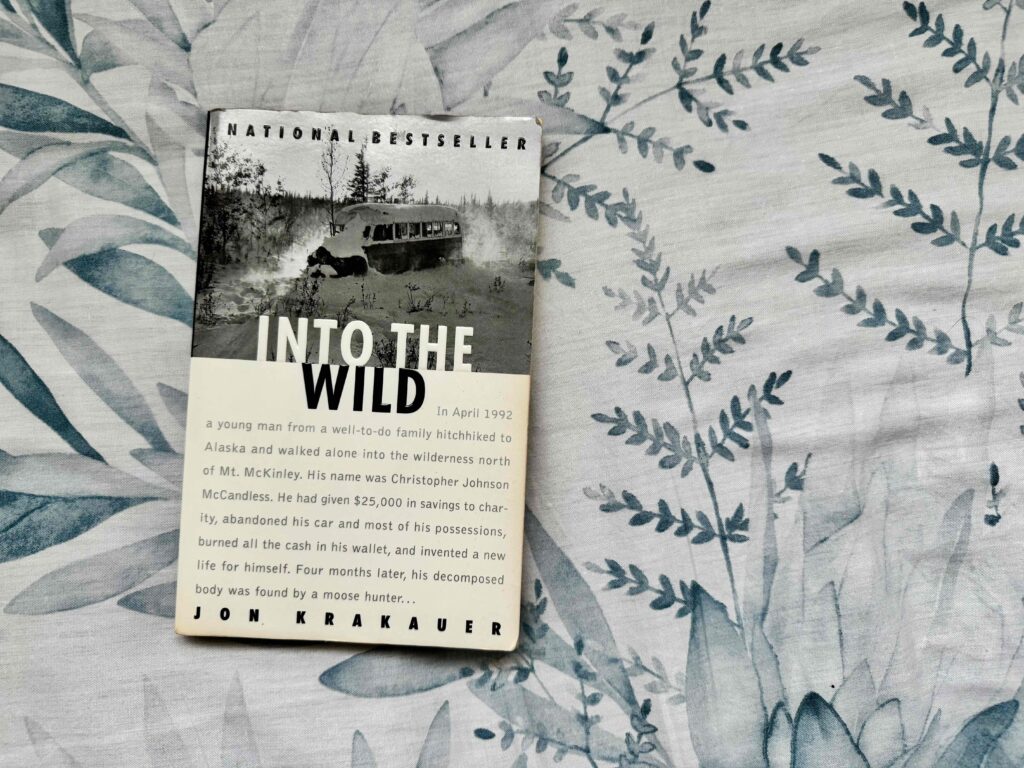Personal Context
I was finishing my road trip that I started a month ago, before buying this book. I found it in a bookstore in San Diego, Verbatim Books. The title of this book, “Into The Wild”, caught my attention. I just came from spending a month between car camping and low cost lodging.
I did a few stealth camping, some state park camping, and low cost lodging, and many overnights at public rest stops. My main goal was to experience being a digital nomad for a short period of time, as I have a full time job. I brought my laptop and worked from places where they have free wifi. Sometimes I also got day passes to work from some co-working spaces.
During that time, I had the opportunity to experience a full disconnection from the internet. For example, when I spent 24 hours in the Navajo Nation, and when I was for 4 days in Death Valley National Park. I knew that there wasn’t any service in there and downloaded a map beforehand. I drove through vast landscapes where roads seemed an endless straight lane disappearing on the horizon. Hours and hours of long drives where I would rarely see another soul on the road.
When I saw the book Into The Wild, it brought me some flashes of memories of the trip that I was about to end in the following days, as I was staying in San Diego for a few days before heading back to Santa Cruz, having one more stop in LA. I felt this book chose me to pick it up.
Into The Wild by Jon Krakauer
Thinking about all the hard work that the author put into writing this essay makes me feel very impressed. I cannot imagine all the effort needed to trace back all the steps that Christopher Johnson McCandless made on his quest to live a meaningful life. Maybe reaching out to his family would be one of the first steps. Then, from there, expanding the research to close friends, acquaintances, and strangers who have been in touch with him in one way or another.
That’s not an easy task! That must have involved a lot of travel to ask around about him. Then, putting together all the pieces and making sense of all the information gathered to tell this inspirational story. A story that I would have never known, as Chris was sadly found dead in an abandoned school bus in the Alaskan wilderness.
How many times have you fantasized about leaving everything behind and going on a wild adventure? Only to wake up from your daydream an hour later to get back to work or your daily routine. Even for people who are not happy with their current situation is difficult to change their current situation to explore new paths in their life.
Uncertainty is a scary thing. We would rather stick to things that we know, even if we don’t like them…And, for those who find the courage to step into the unknown, they will face a storm of discouraging words from those who are not able to see this world from a different perspective. In that note, it’s important to know to whom you share your ideas. More often than not, I find myself sharing less and taking the leap, trusting in my own guts.
“…So many people live within unhappy circumstances and yet will not take the initiative to change their situation because they are conditioned to a life of security, conformity, and conservatism…The joy of life comes from our encounters with new experiences…Move around, be nomadic, make each day a new horizon.”
Extracts of Chris letter to Russel Fritz (“Ronald Franz” in the book)
Travel and witness the sunset from different horizons. Be open minded to meet strangers and at the same time to be socially detached. How many times a year do we take time to disconnect socially? How often do we connect with nature and allow us to be with ourselves? And I mean truly by ourselves.
Organized retreats won’t make you learn about yourself, although those retreats are a good option to relax and “disconnect”, they won’t serve as a medium for self discovery. For self discovery, one needs to put oneself in a situation where one learn to be self sufficient, trusting your own decisions throughout a sea of uncertainties. That navigation is what will make us grow into a better version of ourselves.
Towards the end of his life, one of his last notes read in capital case “HAPPINESS ONLY REAL WHEN SHARED.” That makes me reflect on how I felt the times that I was alone in nature. I thought that I was happy, and now I am realizing that I was at peace instead. I felt calm, without internal emotional conflicts. Then, what Chris wrote makes sense to me. I wanted to share my excitement with someone in person, and it didn’t matter whether that person was a stranger that I’d never see again. What matters is that whoever I choose to share my happiness with will have the capacity to reciprocate with the same enthusiasm, interest, or curiosity.
After all, we human beings are social creatures. Having said that, I want to remark that being at peace won’t necessarily make you happy. Being at peace is accepting yourself as you are, being an observer. Free of judgmental thoughts.
Christopher Johnson McCandless was an avid reader of books written by philosophers exploring self-reliance and connection with nature, questioning the status quo of conventional society — Thoreau, John Muir, Tolstoy, Ralph Waldo Emerson, Boris Pasternak, Jack London, to name a few of the ones that influenced Chris the most. There are passages from other thinkers that are also impactful and made me stop reading and reflect.
This book is profound.

